Hoarding is a complex problem that goes far beyond simply having too much stuff. In order to create an effective decluttering strategy for hoarders, it is important to understand the psychology of hoarding and why people feel compelled to keep so many things.
Hoarding is often a symptom of underlying psychological issues such as depression, anxiety, or trauma. People who struggle with hoarding may find that they have difficulty making decisions or organizing their possessions due to these issues.
Hoarding can also be a sign of poor coping skills or difficulty managing stress. Understanding the psychology behind hoarding can help create effective strategies for helping someone get organized and begin the process of decluttering their home.
It is also important to recognize that decluttering takes time and requires patience; there is no quick fix when it comes to tackling the problem of hoarding.

When evaluating different types and levels of hoarding conditions, it can be helpful to understand the various signs and symptoms associated with each. Hoarding is an often misunderstood issue, so understanding the underlying causes and identifying the challenges that someone dealing with a hoarding condition may face can help create effective decluttering strategies for hoarders.
Common signs of hoarding include buying in excess, difficulty throwing away items, anxiety when considering discarding something, and difficulty organizing or categorizing possessions. Additionally, there are varying levels of hoarding from mild to extreme.
Mild hoarding often involves collecting items such as books or clothing while extreme cases can involve living spaces becoming overcrowded and unsafe due to accumulation of items. It is important to recognize that everyone's situation is different and individualized solutions are necessary to successfully address the clutter in their home.
Effective decluttering strategies for hoarders will vary depending on the severity of their condition but can involve enlisting professional help, addressing underlying mental health issues, setting realistic goals, and building a support system to ensure long-term success.
Pack rat behavior, or hoarding, is a growing problem in many households. While it is often associated with mental health issues such as OCD and anxiety, it can also be caused by other factors.
Decluttering strategies for hoarders can help to reduce clutter in the home, but first it is important to understand why people tend to become pack rats in the first place. Many times it is a result of emotional attachment to objects or memories they associate with them.
Lack of organizational skills may also lead to an accumulation of items that are difficult to manage and store. On a deeper level, some may find comfort in having many possessions around them, as it provides a sense of safety and security.
Low self-esteem and feelings of guilt may prevent someone from throwing away items due to fear of making the wrong decision or wasting something valuable. Finally, limited living space can cause people to accumulate items they don't need because they simply have nowhere else to put them.
All of these common reasons for hoarding can be addressed through decluttering strategies for hoarders so that their homes can become organized and clutter-free again.
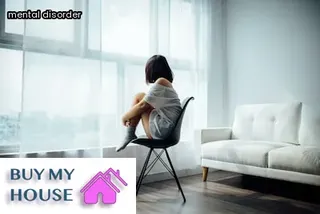
Recognizing important factors that contribute to persistent clutter problems is essential for hoarders who are looking for decluttering strategies.
Hoarders often have difficulty discarding items due to the perceived value of these possessions and an inability to part with physical reminders of past experiences, leading to a build-up of objects in their home.
Environmental triggers such as social anxiety or limited resources can also lead to a tendency towards accumulating items, while mental health issues like depression can make it hard to prioritize tasks necessary for effective organization.
Finding ways to manage these issues is key to successfully reorganizing a home and implementing lasting changes in behavior.
Managing and reducing hoarding behaviors can be a difficult and complicated process. However, there are several decluttering strategies that hoarders can use to make the process more manageable. One of the most important steps is to create an inventory of all items in the home.
This helps to identify what needs to be kept and what can be discarded. Additionally, it’s important to set realistic goals for organizing the space and work towards them gradually. This will help prevent feeling overwhelmed by the task at hand.
It's also recommended that hoarders try to break down this task into smaller, more manageable chunks as this can make it easier to get started. A good decluttering strategy is to categorize items into “keep”, “discard”, or “maybe” piles. This will make it easier to decide which items should stay and which should go.
Another way to manage hoarding behaviors is by establishing routines that help keep clutter from accumulating in the first place. Finally, hoarders should enlist support from friends or family members who can provide encouragement and accountability when trying out these strategies.
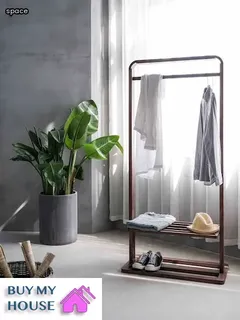
Decluttering a home can be an overwhelming task for anyone, but especially for hoarders. It is important to understand that it is not necessarily the objects that are being hoarded that cause the problem, but rather the emotional attachment to them.
To help hoarders overcome their challenges, there are a few practical solutions they can turn to. One option is to focus on organizing items into categories and setting realistic goals for themselves such as removing one item from their space every day or setting a timer for fifteen minutes a day in order to focus on discarding items that no longer bring joy.
Additionally, it can help to create specific places for items within the home so hoarders know where everything should go once it is cleaned up. Finally, it may be beneficial to work with a professional who specializes in helping people with hoarding disorder in order to develop personalized strategies tailored towards their individual needs and circumstances.
A hoarder's home can quickly become cluttered and disorganized, making it difficult to find the items they need. In order to begin tackling a hoarder's mess, it is important to take simple steps that will help them start the process of decluttering their home.
Firstly, create a plan and set realistic goals for how long it will take to declutter each room. Secondly, assess the entire home and determine what items are worth keeping and those that should be discarded or donated.
Thirdly, sort items into categories such as garbage, recycling or donations so that it is easier to organize belongings. Fourthly, devise a storage solution for all possessions that allows for easy access while still maintaining neatness.
Lastly, gradually work through each room until the task is completed and encourage your loved one throughout the process by offering support and understanding. With these strategies in place, decluttering a hoarder's house can be an attainable goal.
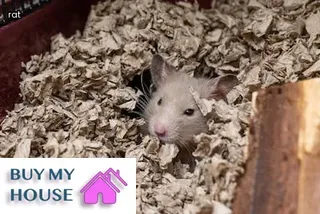
Decluttering a home filled with hoarding behavior can be extremely difficult and overwhelming. Professional help from a mental health expert, like a psychologist or psychiatrist, is often the best option for those seeking assistance with their hoarding.
Professional help can provide hoarders with tools to manage their thoughts and feelings as well as strategies to reduce clutter in their home. Benefits of professional help include improved communication, better problem-solving abilities, increased motivation, and enhanced self-esteem.
A professional can also offer support during important decision making processes such as getting rid of items that are not necessary. Additionally, they can provide guidance on how to identify triggers that lead to hoarding behaviors and develop coping skills that will ultimately lead to a more organized home.
Professional help can also provide hoarders with access to community resources such as support groups and storage units for items that may no longer fit in their homes but cannot be discarded because of sentimental value. Ultimately, professional help offers an effective solution for those struggling with hoarding issues by providing them with the necessary skills and resources needed to declutter their homes successfully.
When it comes to decluttering a home filled with hoarded items, professional organization advice can be invaluable. Experienced organizers know how to approach a hoarding situation and can provide practical solutions for sorting through the accumulated stuff.
Their recommendations are often tailored to the particular needs of the individual and may include breaking down tasks into manageable steps, prioritizing what should be kept or discarded and providing strategies for dealing with any potential emotional distress caused by letting go of possessions. Organization experts typically suggest creating an action plan, setting realistic goals, using storage solutions such as bins, baskets or shelves and enlisting family members or friends for support during the decluttering process.
Ultimately, an experienced organizer’s valuable advice can help hoarders take back control of their space and begin living a less cluttered lifestyle.
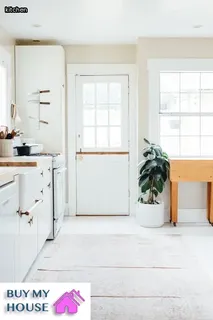
When it comes to decluttering strategies for hoarders, assessing the clutter and addressing areas of concern in your home is an essential step. It can be difficult to know where to start, so it’s important to take a holistic approach.
Start by taking a look at your current living situation and make notes of what you want to change. This will help you identify problem areas that need attention.
Once these areas are identified, it’s time to set goals for each one. For example, if you have too much paper clutter in your living room, aim to reduce it by half over the next month or two.
Break down larger goals into manageable tasks that can be completed on a daily or weekly basis. As you work through each task, consider why the clutter has built up in the first place and make changes accordingly so that it doesn’t become an issue again in the future.
Additionally, invest in storage solutions like bins or shelves that can help keep things organized once they have been sorted and decluttered. With patience, dedication and the right strategy, you will soon find yourself living in an organized and stress-free environment!.
When it comes to decluttering, hoarders often face the difficult task of disposing of items they no longer want or need. It can be a daunting process, especially if it's been a while since an organized decluttering effort was last made.
To make the process easier and more effective, here are some tips on how to safely dispose of unwanted items during a declutter process: Start by sorting through your belongings and create separate piles for donations, sales, recycling, and trash. Be sure to research local regulations for properly disposing of hazardous materials such as paint cans or batteries.
If you have any large items such as furniture or appliances that still work well but no longer fit into your home organization plan, consider donating them to charities or selling them at yard sales or flea markets. Recycling is also a great option if you have boxes of books, magazines, or newspapers that you don't want.
Finally, be sure to take advantage of local waste programs like curbside pickup for all non-recyclable trash items. By following these steps during a declutter process, hoarders can easily manage their possessions in an organized manner while still taking care of the environment.

Before hiring an expert organizer or home declutterer, it is important to consider a variety of factors.
How much experience do they have and what techniques do they use? What is their process for assessing and organizing the space? Is there a cost associated with their services, and if so what are the payment terms? What kind of guarantee can they offer that their services will benefit you in the long-term? Additionally, it is important to ask yourself what kind of help you need specifically.
Do you need an organizer who can create a plan tailored to your particular situation, or do you prefer one who focuses on more general organizational strategies? It is also important to consider if this professional has worked with people dealing with hoarding issues before and if they have any specialized training in this area.
Ultimately, choosing the right expert for your unique needs can make all the difference when it comes to successfully decluttering and organizing your home.
Being a pack rat can have serious mental health implications. From anxiety and depression to low self-esteem, hoarding is a behavior that affects both the physical and psychological well-being of an individual.
It is important to understand the underlying causes of this behavior before attempting to declutter. In many cases, it can be linked to unresolved grief or trauma, or even a feeling of being overwhelmed due to the amount of possessions that have accumulated in one's home.
Additionally, hoarders typically struggle with decision-making and experience difficulty discarding items they deem valuable or sentimental. By taking the time to recognize these issues, individuals can begin to tackle their clutter issues in a more sustainable way.
There are various approaches that can be taken when addressing hoarding behaviors such as cognitive behavioral therapy (CBT), developing organizational skills and creating an action plan for decluttering. Through education and support, it is possible for those affected by hoarding disorder to take back control of their lives and create a much more organized home environment for themselves.
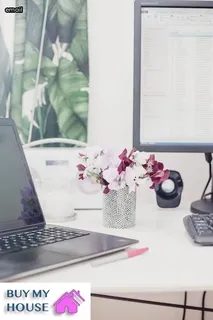
When it comes to successfully decluttering a home, having the right resources and tools can make all the difference. Hoarders should identify helpful resources that can assist them with their home organization projects.
Professional organizers are always a great place to start; they offer personalized guidance and advice about how to effectively manage clutter and create an organized environment. Home organization services like Cleanly also exist - these companies provide everything from packing and moving services to organizing storage solutions for any size space.
Online resources such as blogs, videos, and webinars are also available, offering valuable tips and strategies for creating an orderly living space. Additionally, local libraries have plenty of books on the subject which can be checked out free of charge.
Lastly, there may even be support groups in the area specifically designed for hoarders who need extra help getting started on their decluttering journey. All of these options combined will help hoarders create an organized home that is both functional and aesthetically pleasing.
Decluttering a home can be an especially daunting task for hoarders who tend to become attached to sentimental items that are difficult to part with. Fortunately, there are several strategies available to help them overcome the challenge of managing their sentimental clutter.
An important first step is to set aside a specific block of time dedicated solely to decluttering and organizing. This helps keep hoarders on track and gives them a sense of accomplishment when they finish each session.
Additionally, hoarders should consider categorizing their sentimental items into piles such as those that will stay, those that will be given away, and those that will be thrown out. Hoarders should also resist the temptation to purchase storage containers until after the decluttering process is complete in order to prevent any further accumulation of clutter.
Finally, it is important for hoarders to remember that letting go does not mean forgetting and taking photos or creating scrapbooks can help provide closure on memories associated with sentimental objects. With these strategies in mind, hoarders can take steps towards organizing their homes while still honoring their attachments to special possessions.

Learning new techniques and strategies for establishing habits around organization practices can be a challenge, especially for hoarders. However, with the right approach and a clear plan of attack, you can make progress towards decluttering your home.
Start by taking an honest look at the state of your home to determine what needs to be done. Once you've identified problem areas, determine which items you need to keep and which ones should be donated or discarded.
Taking on one task at a time also helps break down the job into manageable chunks that won't overwhelm you. Create storage solutions that are tailored to fit your lifestyle and make sure everything has its own designated place.
Investing in organizational tools such as containers and furniture pieces can also help keep clutter at bay. Finally, don't forget about preventative measures like creating a “no buy” policy or implementing a regular cleaning schedule so that future messes don't pile up again.
With some patience and hard work, you can learn new habits that will help keep your house organized while reducing stress levels in the process.
If you're looking for the best way to start decluttering your hoarder home, it's important to create a plan and take it one step at a time. Start by sorting through items and deciding what should stay, what should go, and what can be donated or sold.
Make sure to involve the hoarder in the process so they feel empowered and in control of their belongings. Once you've sorted through everything, set up designated areas for keeping items, such as shelves or boxes.
Make sure these areas are easily accessible and visible so that new items can be added with ease. Finally, make sure to have an established system for maintaining order, such as regularly scheduled clean-up times or implementing a "one-in-one-out" rule.
With these tips and tricks, you'll be on your way to decluttering the home of a hoarder quickly and effectively!.

If you're a hoarder who feels overwhelmed by the amount of stuff in your home, take heart; there are decluttering strategies that can help you organize and reduce the clutter. Start by sorting through your items and deciding what to keep, donate, or throw away.
Once you have a plan for each category, make sure to give yourself plenty of time to work through it. Begin by tackling one room at a time and designating specific areas for each item.
Make sure to ask yourself if an item has lasting value or meaning before keeping it. Also consider repurposing items into something useful; for example, an old dresser can be used as shelving or storage containers.
Finally, create designated spaces for everything in your home and label them so that you know where everything belongs. With these decluttering strategies, you can organize your house with too much stuff and reclaim your space!.
Hoarding is a serious mental health issue that can cause considerable distress to the person and their family. When hoarders are looking to declutter and organize their homes, they must be aware of the five stages of hoarding.
The first stage is the accumulation stage where the hoarder begins collecting items without any purpose or plan. The second stage is the cluttering stage where objects start to accumulate to the point of disorganization.
The third stage is the active hoarding phase, which involves more serious collecting and clutter in every room of the house. The fourth stage is called crisis hoarding, which is when a hoarder has lost control over their collections and it can become a danger to themself and others in their home.
Finally, the last stage is recovery, where a professional helps create an organizing system for decluttering and organizing the home for minimal stress and maximum efficiency. By understanding these five stages, hoarders can begin to effectively manage their possessions through proper decluttering strategies.
The fastest way to organize a cluttered house is to start with decluttering strategies specifically designed for hoarders. Begin by removing all unnecessary items that are cluttering your home, such as old newspapers, magazines, clothes, furniture and knick-knacks.
Once the clutter has been removed, it is important to create an organized system to keep the remaining items in their proper place. Use labels on shelves or drawers so you can easily identify where everything belongs.
Additionally, make use of storage bins and baskets to store smaller items in an orderly fashion. Lastly, set aside designated areas for specific items by using dividers and separators so that everything has its own place.
Following these steps will help hoarders stay organized and keep their homes clean without feeling overwhelmed by clutter.